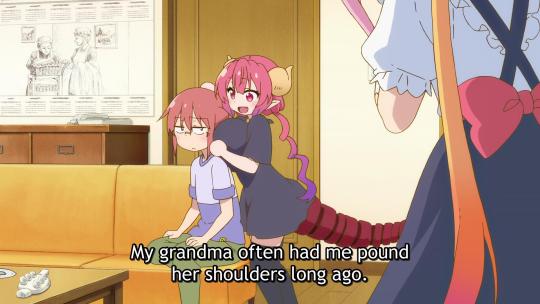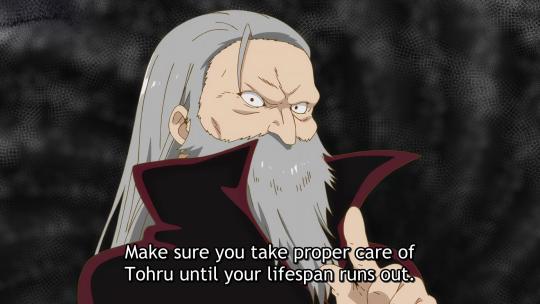#high Ni vs low Se problems
Explore tagged Tumblr posts
Text
retyping(?) @ten-of-imps

looper isfp (or alternatively and unlikely, infj)
I genuinely can't tell if the reason I am typing more people as loopers is because I am biased or because most people follow the iiee/eeii stack...
I mostly approached your typing question by question. towards the end I make my final judgement, but I tried to collect as much inference and deduction from your answers as I could before I made a typing.
viewing beauty as subjective is definitely high introverted function. it could be interpreted as high fi, especially with the "judgement" aspect of both the question as answer, but I didn't want to make assumptions too early. what I looked more for was where your subjectivity was coming from. you acknowledged the fact that different observers hold different perceptions of beauty - which is very much fi. even later in the question, you seem to assert your own fi judgement - which seems to me to be very healthy. the combination of acknowledging subjectivity but also having your own values/judgement.
something I found very interesting was your use of the word "convenient" towards how you describe you can "switch" your love for something depending on how much you care about it. when I read it, it seemed as if you didn't really feel it objectively, as a fe user would. applying a sense of love with no requisites. instead, it was something very personal, very subjective to the situation (fi).
for your personal values - I don't type on what the value is, but rather how you experience it. I also don't believe that just because it doesn't come immediately to you doesn't mean that you're not a fi user (because values are not usually consciously thought about).
if I did type based on your values I infer that you hold a sense of duty towards the things you do, which may/may not be fi.
you want to have integrity, but from the way you view yourself you are seemingly 'all over the place.' i wasn't entirely sure how to interpret what you meant by 'integrity' - is it that you want to be true to yourself or true to others? how do I even type someone who wants to be vs. someone who actually is?
I spent a bit of time thinking about this, and I decided that
for your question on power and military - I actually saw a lot of ni. you seem to look at the past to synthesize and spot patterns, which is part of how you make predictions/judgements about topics.
towards the end of it, however, you mentioned something about how you interpret power. you stated how you believe it's "having enough money to make free decisions and have plenty of possibilities to choose from, so you would never have to be stuck in a bad situation."
...this is very, very much isfp. there isn't much isfp info online, but from the one's there are, they are practically known for wanting freedom (even more then every other type 👀).
(um so this is the part of my typing where I get a little lazy but this is just more evidence of fi>fe)
not being very connected to surroundings or outside situation -> low sensory
searching things up to find objective source or facts, looks towards outside sources -> te?
valuing authenticity (mostly within self and expressing it towards others) in relationships -> fi
the entire answer related to society was so ixxp it's actually wild...
critiquing societal structures from an ethical standpoint ("society does not work for everyone", "rent is a crime", "a sign that a society is failing") is very very very much fi
the labyrinth dream is NI NI NI NI:
unsure about the future, questioning the path to take and possibilities, then afraid of choosing a safe path and hated being taken no where. you cared more about what was safe, rather than what you loved internally, which ultimately brought you comfort. but through feeling safe, you felt you could explore more.
now here is the problem - I can't type you as an isfp, since you are very low in se. there is a way for me to do this, but there is not much information online for a fi-ni-se-te infp. you can try searching it up and doing research, but I doubt there is enough (yet), since the iiee or eeii structure is not as popular (even though carl jung confirmed it could work).
in the end, I decided that ne just didn't work, not matter how much I tried to reason an infp typing. I simply cannot see you as an infp, no matter how much I tried to twist your answers or interpret it in different ways.
this left me with the 2nd possibility, that you are an infj. the problem here is that again, your fi is stronger than your fe. ultimately though, I am able to see how some of your feeling answers could (key work - could) be a way that your fe manifests. imo, it is much more likely that i mistyped your fe rather than your ni, since your ni just seems to be a lot more concrete.
in the end, I will end up typing you as an infj. but I will leave the option open for that fi-ni-se-te infp. I know that you probably submitted another typing since isfp may have not identified with being an isfp. however, consider searching up looper isfp (although most results will talk about more negative stuff since looping is considered unhealthy).
#infj#isfp#mbti#16 personalities#mbti memes#infp#mbti personality#16personalities#enneagram#mbti types#cognitive functions#isfp memes#infj memes#infj personality#infj quotes
8 notes
·
View notes
Text
Kobayashi’s Maid Dragon S2 Episode 11 Notes

This is ラジオ体操 radio taisou, lit. radio exercise(s). Basically it’s a short series of light stretches intended for general health. It used to be broadcast over the radio (and I guess still is), but is also on TV and internet these days too.
It’s generally popular as a morning thing to kind of get the blood flowing—some companies (apparently around 1/3rd) even have a few minutes in the morning set aside to have everyone do it. Some neighborhoods will hold outdoor public gatherings during summer break, as a morning routine thing for children while school is out. It’s also a kinda stereotypical old-person thing to do.
There are two “sets,” known as radio taisou dai ichi, and radio taisou dai ni (basically “the first” and “the second”), and each has a standing version and sit-down version for improved accessibility.


“Pound (shoulders)” here is 肩たたき kata-tataki, a type of shoulder massage that involves lightly bopping the recipient’s shoulders with the bottom of your fists. It’s a stereotypical thing for kids to do for parents/grandparents (remember the shoulder massage tickets Kanna gave Kobayashi for Father’s Day in ep 8? same thing).

I honestly have no idea how effective it is.


小林さんは安く済ませようとして、色々物を買ってしまうタイプなんでしょうか?
For clarity here, the idea is less that Kobayashi tries to buy lots of stuff for cheap, but that she wants to solve whatever problem on the cheap, and ends up wasting a bunch of money on several cheapo purchases that don’t really help.
Another angle on it might be like:
“Could she be the type who tries fixing a problem cheaply, but ends up paying more for less?”

Just a bit of trivia, but in the manga Elma answers this question about computer chairs by saying “Yes, a good one costs as much as 1,000 cream buns.”
That’s our Elma.


Takiya’s word for “logic” here is 理屈 rikutsu. Rikutsu does mean “logic,” but it has another use too: referring to something that relies excessively on “theory” vs. practical application/real experience, or a kind of “forced” logic.
Basically here he’s saying this out of modesty, not like “the solution was only logical.”


This “concerning” is 危うい ayaui, an adjective describing something that’s in a perilous situation, kind of like something you’d say “balanced on a razor’s edge” of. It’s typically for less immediately physical types of danger (which would use 危ない abunai instead).
In this case, while it’s true such situations are typically “concerning,” he’s not saying this because he’s concerned per se; he’s saying that situations like Tohru’s, where emotions run high (e.g. romantic relationships), are often fragile because of that strength of emotion.


For “a little hard,” Tohru says グサッと gusa-tto. (“Sharp” was 鋭い surudoi, which is basically one-for-one.)
Gusa-tto is one of those sound effect words mentioned in previous notes, used to describe a heavy stab or pierce (literally or figuratively). (If you’ve seen that anime/manga visual gag where someone says something and the words/speech bubble “stab” the other person, that’s a more light-hearted use of this.)
I mostly bring it up here because the “he’s sharp”→”what he said cut deep” was a good pairing of evocative phrasing that we didn’t really get in the English.


この程度でいいですか? kono teido de ii desu ka? この程度でいいよ。 kono teido de ii yo.
Kobayashi’s answer here is repetition of the question, but changing the “question” marker for a declarative one. Like “Is this enough?” “This is enough.”
I bring it up here for two reasons. One is just because I mentioned the whole repetition thing in a previous episode’s notes, so as an example to help drive that home.
The other is that I have a bit of an issue with the choice of the word “perfect.” Kobayashi is generally a lowkey person (with some exceptions), prone more to understatement than overstatement, so a relatively strong word like perfect is a little out of character for this scene, I would say—especially given the Japanese.
The use of the particle で de in these two lines is also worth noting. In this context (where you’re talking about whether something is what you want), de ii and ga ii have two distinct meanings. With de, it’s “good enough.” With ga, it’s not just enough, it’s actively what you want. If you’ve seen romance shows where one person has low self-esteem, you’ve likely heard a question like “boku de ii?” answered with ”kimi ga ii.”
If there’d been some sort of twist to the phrasing like that, “perfect” might have been a good choice, but as it is I’d have probably stuck with something like “Yeah, this is plenty.” (if maintaining that sentence structure anyway)



そういうもんですか? そういうもんだよ。 分かりました。そうします。
Just one quick note for clarity on this exchange; the “that/this” they’re talking about is the “what Kobayashi wants” topic, not specifically this tail-chair thing or how fast the tail-vibrations are etc. You likely got that anyway, but I figured I’d mention just in case, since the Japanese wording felt more obvious about it.

Notably here Daddy Tohru says 知り合い shiriai, which is very explicitly a level or two removed from “friend.” (it’s often translated as “acquaintance”)
They might actually be friends and he just phrases it that way because tsundere, but either way I don’t know if I’d use “friends” here.

If you’ll recall from the Elma episode, “clairvoyance” there was 千里眼 senrigan. This is actually not that, but instead 未来視 mirai-shi, which is more or less literally “future sight.” It probably won’t really come up again(?), but just as a world-building thing I guess, know that this guy and Elma don’t actually have exactly the same power (at least in this instance).

The word for “lost control” here is 暴走した bousou shita, which does basically mean that.
I would, however, like to point out that he’s not necessarily saying Tohru lost control of herself. Bousou means that [whatever] is running wild, but that ranges from a runaway train, to someone going berserk, to someone acting rashly without consulting others.
My point in bringing it up is that “lost control” sounds like Tohru had little/no agency in the decision to storm the enemy’s home ground, which is not really the case and not necessarily implied in the Japanese.


When Kobayashi responds here, she says she, Kobayashi, will be the one getting looked after by Tohru, not the other way around. She flips it 180 degrees from how Dad here says it.
(Since, y’know, Tohru’s the maid and everything.)
Example alt text:
“Make sure you take good care of Tohru until your lifespan runs out.”
“Yessir, I’ll have her take good care of me.”
It’s supposed to give this very heavy and serious scene a bit of levity to end on.
(For the Japanese students: she says [面倒を]見てもらいます, meaning that Kobayashi is having Tohru do the “looking [after].” If she was the one doing the looking after, it would be something like 見させてもらいます instead.
When you stick もらう or いただく after a verb, it’s you having someone else do that verb, not you doing it, so to make it work for “you” being the verb-doer, you have to flip the verb to a passive form. It’s kind of like the difference between “please [verb]” and “please allow me to [verb]”.)

どうしてトールがうちに来てくれる気になったのか
Two small things about this line. First: the “came here” is うちにきてくれる uchi ni kite kureru. The two words I want to mention are uchi, which is like “my/our place” (like “wanna come to my place?”), and kureru, which is used as a helping verb to denote that a verb was done for someone else.
So basically the Japanese adds two extra layers of… emotion(?) to the “came here.” That is, “here” is specified as Kobayashi’s home (vs “here” being more vague and could just mean “this world”), and the “came” is conjugated in a way that expresses Kobayashi sees Tohru’s .
The second, more minor, is that it seems like the English took the 気になった ki ni natta and changed it from talking about Tohru to talking about Kobayashi.
Ki ni naru can mean to take an interest in something (“I’m curious”), or when attached to a verb, can mean “got the will/motivation to do [verb].” In this sentence, it’s attached to the verb phrase uchi ni kite kureru, so meaning more like “why you chose to come here.”
(That said you could easily leave the “curious to hear” part there in the English too though, since that still makes sense for her asking a question like this.)
(Basically the English reads like a translation of どうしてトールがここに来たのか気になった instead of the line in question.)
So like as an example alt:
“I’m curious what moved you to come live with me.”
Which still doesn’t fully grasp that kureru, since that’s a hard thing to just “slip in” in English, but does hit a few other relevant notes and should still be okay length-wise (cursed subtitle restrictions!).

The phrase for “[move] to the big city” here is 上京 joukyou. It combines the characters for “up” and “capital” (of a state/country) and is used as a verb for moving to the capital—these days, specifically Tokyo.
(It used to mean moving to Kyoto, and I’m told it annoys some old-school Kyoto-ites if you use it to say moving from Kyoto to Tokyo, lol.)
14 notes
·
View notes
Note
Hello! Love your blog. I was wondering if I could get some typing help? I have a general idea of what I am, but that’s not saying much since I have a tendency to hop between a few of them (INTJ, ENTJ, ESTJ specifically). Either way, hopefully you can help me settle it.
I’m 22 and about to graduate from college. It’s been a journey, because I’ve transferred twice and changed plans a few times, but that’s the proper college experience, I think. One transfer closer to home can be owed to depression and Covid, while the first was simply me not meshing with the campus. I’m not too worried about how it’ll affect my grad school apps due to good grades and valid reasons.
Despite the schooling-related indecision, I tend to get an idea of what I want, then fixate on it heavily. Example: I recently tried to publish a novel I’ve been working on for years now. Realistically, I know the odds of getting your first work published and making enough money to start a career on it are beyond low, but a big part of me thought “yeah, except I worked on this draft consistently all these months and this feels right, so it has to pay off” – of course, it didn’t. That’s not to say it wasn’t worth it, but I’ve come to accept it won’t be that easy, so I’m going to focus on a job with more security first lol. That means proceeding with law school. Some friends might think I’m selling my soul by putting my dreams on the back burner. I disagree, though, because if writing is meant to be I can still make it happen this way but with more security. Plus, I’m used to having some higher objective to motivate me through each day, and I don’t like feeling aimless. To me, that would be settling for less: wasting time working next to minimum wage at some place I can’t see myself staying.
I’d like to think of myself as spontaneous despite knowing I’m really not. When I’m with friends, maybe, but I’m more than happy to do nothing on Friday nights, knowing I’ll be able to wake up early tomorrow and do whatever I’m doing at a decent time. That being said, I would be happy to hop on a flight across the world if someone offered to pay the way. I love travel, so I’d hope to find a career that makes that possible. The same goes for whatever work I’m doing. Ideally, I could move from place to place as I do my job, because I fear being rooted will keep me from seeing everything I’d like to see.
I’m definitely an introvert dichotomy wise, but if group work appears, I’m happy to make a plan and remind everyone when a due date is near, and I expect them to follow through or provide some forewarning. I’m not outright nasty when someone inevitably slips up, but I’m not going to give them an excuse either. Can’t relate since I’ve never had a problem with procrastination. Like, I’d say I’m procrastinating, but to me procrastinating is choosing not to get ahead on the project due next week while I have spare time now. That makes me sound like a robot or a liar, but I’m mostly just very aware of my limitations and have learned how to manage work in a way that keeps me from having to stress.
I have no idea how to end this. Quick notes? I’m ambitious but not competitive – literally cannot relate to envy, because I don’t think someone having something means you can’t have it too – you just have to work on/for it. I’m not very curious lmao. Like, I’m as curious as the average person, but I don’t care about how things work (Ti slacking?). Uhh, fandoms annoy me. Like, seeing fans distort characters and needlessly project onto them in cringe ways makes my brain itchy. I’ve been called insensitive. I can easily cut someone off after finding, for a fact, that they’re being manipulative. Whatever baggage they have, I don’t care. I don’t see the point in fighting for a relationship when a “friend” is working against you. I’m also the “advice friend” because I don’t have drama and seem to know how to diffuse it easily or cut it out completely. Now that I think about it, all of my closest friends have a lot of anxiety, so maybe I collect them and care for them a little since I have none.
Hopefully that wasn’t too much useless info. I think I’m mainly struggling on differentiating between lower Ne vs Lower Se. My indecision comes in rare bouts, so maybe that’s the weak Ne manifesting. Or maybe I’m lower Se for forgetting the larger scheme by focusing on material things like getting to travel and making a high salary? Whatever. These are things most people prioritize, though. Let me know if you need any specifics. Also, thank you for taking the time to read this! I really appreciate how informative your blog is and all the resources you share.
Hi anon,
To be honest I am really not sure based on this, and it might be good for you to revisit this after a little bit of time out of school. I would rule out the Ti-Fe axis, but I can actually see arguments for either high Te or high Fi My guess is high Ni if you have high Te you don't really sound like a high Si user - and part of what is tripping me up the most is that you said a lot of things that make me thing of high Fi and the spontaneity of Se or Ne, but there's a lot here that really sounds intuitive but distinctly not like an Ne user. So I actually think there are arguments for either INTJ or ISFP, and I actually lean a little more towards "ISFP with good discipline/time management" than INTJ.
Here's my thought process, which hopefully can get you started.
I do feel like transferring twice is a little abnormal (not bad, just more than the typical college experience of maybe one transfer and changing one's major once or twice) but COVID did fuck with things more than usual so no conclusions there.
The fixation on writing a novel and the long-shot of gaining enough success to focus on that full time - particularly right out of school or even before graduation - is either intuitive or possibly high Fi. I really do not think an ESTJ would have that idea - not that they wouldn't be a writer, but I don't think they would have had the same expectations surrounding payoff and would have assumed from the start that this will not be their career initially. For that matter I have my doubts on ENTJ, but it could be possible for INTJ.
The part about spontaneity actually fits really well with auxiliary Se or Ne, in that those types at your age will have moderation from Ni or Si respectively and will often want a combination of stability but also the ability to travel a lot and move around. The example you gave actually still seemed very spontaneous; a lot of ExTJs for example might really dislike doing nothing on a Friday night and would instead have something planned. What you describe sounds very go-with-the-flow, just in a low-key way.
The part about procrastination indicates that Ne is probably off the table but Se is possible; some SPs are pretty good at being realistic about getting things done and it sounds like you don't have the high Te motivation of "I must get this done early" (not that high Te users can't procrastinate or do things on time but not down-to-the-wire).
I often tie ambition/competitive nature to enneagram more than MBTI, but I will say a lot of Te users and especially Te-doms tend to be both. They don't have to be (and if they're only one, usually it's ambition over competition), but it's pretty common. Curiosity is complicated but not caring about how literally everything works does seem like it would rule out Ti and I'd fully agree there. The part about being frustrated by fandom distortion of characters is relatable to me and I feel that comes from a place of sensing, ie, were you not paying attention to canon, so that seems like a point towards high Se for you. The parts about advice and interpersonal relationships mostly just reinforce that you sound more like someone on the Fi-Te axis, which you already suspected, but again...being the advice friend, particularly from a caring position, seems more high Fi to me than INTJ; a lot of IxTJs (and definitely ExTJs) at your age are just not emotionally ready for that level of patience with anxiety. I know I wasn't.
I would also say focusing on the material things (travel, a liveable salary) is more in line with higher Se! Te users do have a measure of pragmatism, so again, can't rule out INTJ, but the travel especially is what's making me think Se is pretty high in your stack.
All in all? My guess is an ISFP with good time management skills, possibly with an enneagram 6 adding to the stability/pragmatism. That said I wouldn't totally rule out INTJ (possibly also enneagram 6?); I just think it's less likely.
7 notes
·
View notes
Text
Typing and function development
Hi there!
I’m wondering about how you go about typing people who are older and have better-developed later functions? I’m pretty sure that I’m an NFP but I think of my Fi and Ne being equally strong and very natural and really working together most of the time. I imagine this is the case for a lot of people who are older and have been ‘working’ on themselves. In previous asks you’ve (casually) typed me as an INFP and ENFP, and even once as an ENTP. I work in the sciences and I think my Ne/Si/Te sometimes combine into this ‘I’m going to think about all the possible ways these details can go together and then pick the most useful/sensical solution’ mode that kinda comes off as Ti sometimes. Anyway, this question isn’t so much about me and I’m not looking for you to type me, but I’m just curious how you try to untangle things like this when you know someone is further along in their functional development and can access their functions more fluidly than say, a younger person or someone who hasn’t worked on development. Would you focus on how they were as a child? Or what they fall back on when under stress? Or is it just that as functions develop during life, it becomes less and less important what your specific stacking is? Personally, I don’t feel like it would give me that much more clarity at this point to know if I’m specifically an INFP or ENFP, for example.
Humans are wonderfully arrogant creatures. We think our lower functions are so wonderfully developed until we meet someone who has that function as their dominant function and realize that we’re really firing on two cylinders. There’s a big difference between an ENFP saying “I made this rational decision, whee!” and them being sat down across from Margaret Thatcher and being expected to explain how and why their decision is rational in a broader context. You know what I mean? I can pride myself on my strong Te, and indeed, it is fairly strong in the sense that I can automatically know the most rational choice to make – but my mother the TJ reaches those decisions much faster and with far less internal Fi angst about them than I do, after I wallow through my feelings to get there. ;)
You may not think knowing your type for sure is important, but it is. Why? Because ENFPs and INFPs are nothing alike in actuality (one swims in a sea of ideas, the other swims in a sea of emotions) and both of them have different areas that are a painful struggle to them and a constant source of angst. Their inferior function differences are immense – ENFPs can “do” Te, but not Si very well. INFPs can “do” Si but not Te very well. And the difference is enormous, when you think about incremental learning (Si) vs. total detachment in decision-making (Te). A Fi-dom cannot shut off their feelings but a Ne-dom can. Ergo, the ENFP will be able to take a job that they hate for a paycheck. The Fi-dom finds that unfathomable, because it’s all about how they feel about something. That dictates their every preference, movie choice, dating choice, and whether they want to go to work in the morning. It’s what makes it so hard for a lot of INFPs to really integrate into society, because there’s nothing in their stack that wants to. Fi-dom wants isolation and to be true to its feelings. Aux-Ne isn’t automatically engaging with the outer world (unlike Ne-dom) – it simply wants to explore what does not offend Fi (whereas an ENFP explores everything on an intellectual level). Si likes things the same and to stay in comfort zones. And inferior Te isn’t that driven to accomplish tangible results without feeling out of its depth.
The ENFP has the opposite problem – so much focus on potential, on people, on what they could become, on how they can see ways to improve the world around them if people would just LISTEN TO THIS POINT OF VIEW… they can often neglect the things that matter in life, the Si things… such as building a stable home environment, or getting married, or settling down, or picking a career and sticking to it, or learning how to fend for themselves in an adult way. They have no problem engaging with people, but run into the problem that their level of “fascination” through NeFi (seeing what you are now, and what you could be with a little nudging in that direction) causes other people to assume the ENFP is more interested than they are; the ENFP is just cruising and seeing potential, they are not always building an emotional investment.
Back to your original question – someone can be mature as hell, and their inferior function is still going to suck. It will be an area of struggle and “ugh” to them, to have to think about dealing with that on a daily basis to excess. They may do it out of duty or obligation or necessity, but it’s not easy for them, it will result in them being ill-tempered, and it will pale in comparison to someone who has that function higher in their stack. It’s the difference between the effortless detail retention of a Si-dom and the struggle to remember important things of an inferior Si. The skilled handling of the environment and taking opportunities as they arise of a high Se and the clumsy over-spending of a low Se. The nuanced decision-making of a Te who knows the value of compromise to achieve, and the militant “hard-assed” actions of an inferior Te trying to impose order. The fluid and easy access to logical consistency of a high Ti, and the nitpicking and criticism of a weak Ti. The effortless connecting of unrelated objects in order to explore a new idea of high Ne and the impulsive leaping on of an idea (good or bad) of a low Ne and insisting it’s the right one. The time-taking internal process of a high Ni who wants to create a specific outcome and will change its variables to achieve its desired end, and the narrow-scoped, negative “I NEED TO DO THIS” of the inferior Ni.
40 notes
·
View notes
Text
kate daniels mbti
I reread the entirety of Kate Daniels recently. Also reread some of the Hidden Legacy books and other Ilona Andrews books. Here’s my mbti typings.
Kate Daniels - ESFP
Se and Fi are the two most obvious functions she has. Curran and other characters characterized her as loud-mouthed and reckless. She was a merc before she joined the Pack. And some of her decisions in the first few books were really very rash. Joining the Pack actually gave her a chance to mature. She could no longer blindly charge into situations because now her actions affected not only her, but a lot of other people. She’s very honest and authentic and her values and actions are always congruent. Some of the best emotional tension and stakes in the series comes when she couldn’t act in accordance with her values. Eg. in Magic Breaks, it was so, so intense and the stakes were very high because Kate, a natural protector, wasn’t able to protect her people. Her friends have always said that Kate is loyal, almost to a fault. If she accepted and befriended you, she was your friend for life, no matter what you did. She won’t give up on you. Throughout the series, Kate is always empathizing with people and she’s kind to them because of her empathy. She’s always taking in misfits. She’s also very physical. When she’s upset, she paces or fights or kills something. She’s constantly fidgeting and taking action. In fight scenes, she seems to often experience peak ‘in the zone’ moments, something that Se-doms/SPs seek.
I think the bigger question, for me, is whether she is an Fi-dom or Se-dom? I’m undecided because I can’t tell if Ni or Te is her inferior function. I’m leaning towards ESFP. Firstly, the last word anyone could use to describe her is ‘passive’ or ‘introverted’. She is not someone who could stand in the background and not do anything. She charges into everything. Her arc shows that she grows from a reckless, superficial and unthinking merc with a secret to hide, to someone who thinks before charging into situations, someone who is concerned with living in a way that’s true to her values and what’s right to her. Slightly supporting my ESFP headcanon is Erra’s last words and the ‘bad end’ for Kate - it shows a vision of her looking like a loose canon; a very powerful and reckless villain with no morals, wanting nothing more than the thrill of the battle. It’s also rare for her to really stop and reflect on the future or for her to have a strong sense of purpose (Ni). When stressed, she tends to want to lose herself physically (get into a fight), or kill the person who caused it. She doesn’t withdraw, wallow, or catastrophize, which tertiary Ni is more likely to do. Also, the way she is so persevering and tough reminds me of strong Te. No matter what happens, if it’s someone she cares about (Curran, her family in danger), she will not stop until she’s eliminated the threat. It’s hard to imagine an Fi-dom being so persevering. Her relationship with Curran also shows a bit of lower function compensation - she compensates for his weak spots (empathy) and he compensates for hers (ruthlessness, as Robert mentioned in Magic Breaks)
Curran - ENTJ
I think his mbti is quite obvious. He’s actually quite a stereotypical example of an ENTJ. Te-doms are often natural leaders and they’re often in positions of power in huge corporations or organizations (the Pack). They’re very efficient and effective at managing or leading. He also has no problem taking full responsibility for issues (very healthy Te), in being very tough-minded and fair, being able to put aside his personal feelings to get the job done (how he dealt with Hugh) and having a low tolerance for things that are trivial/waste his time. Ni is obvious in how he’s a long-term and strategic thinker. Eg. the way he maneuvers around pack politics and the way he uses panacea for diplomacy, the very groundbreaking idea to create a Pack. In the book after he leaves the Pack, he said he doesn’t miss the Pack, but he misses taking something very big and complicated and making it work better (very ENTJ) - which is why he started fiddling with the Guild. On a site note, Rogan Connor from Hidden Legacy is also ENTJ, although quite different.
Jim - INTJ
Stab in the dark. He is able to separate the professional and personal parts of his life quite well and doesn’t let personal feelings get in the way of getting the job done, e.g. Kate/the Guild vs Pack (TJ), he’s very much someone who lurks in the background, waiting for all the information before he acts (I), and NJ because he’s overly serious and intense and obsessive when pursuing a goal or when threatened. Also, he’s quite confident in his paranoia and Ni-Se/Se-Ni gives a person a hard edge compared to Ne-Si/Si-Ne.
Derek - ISFP
A guess. He’s a lone wolf - ISxP. He’s quite gentle and introverted. He’s often in the background and doesn’t involve himself in things unnecessarily. I’m very curious how he’ll turn out in the upcoming Ryder book.
Raphael - ESxP
There are a number of Se-dom men in Ilona Andrews’ writing. Kaldar from the Edge, Alessandro from Hidden Legacy, Raphael and Ascanio from Kate Daniels... they tend to be really playful, sensual, doesn’t take anything seriously, and physically/sexually attractive. It explains why Curran/Rogan don’t like them, lol.
Barabas - ExTP, Christopher - IxFx?
Barabas has strong ExTP vibes. He’s mentally very sharp, does well in his position as a lawyer, he’s good at picking apart people’s arguments and exploiting agreements to find loopholes. He mentioned to Kate in Magic Binds that he really likes taking a problem, breaking it apart, and finding a solution for it - Ti.
We don’t know much about Christopher, but from his demeanor, I suspect he’s an introverted feeler. He's quite quiet and he's very gentle.
Roland - narcissistic ENFJ with self-image issues
He’s a control freak and a megalomaniac who thinks he knows best. Whenever someone is a control freak, they are most likely a EJ and are doubling down on a loop, trying to control everything around them when what they need to do is stop and reflect. He likes to appear kindly and fatherly and goes to some extent to manage other people’s perceptions of him - what other people think of him matters to him (dysfunctional Fe). He is remarkably immune to logic and reality, even when evidence of his cruel and harmful actions are shown or told to him, he ignores them or twists them into something else that suits his beliefs (low S, low T). He doesn’t like imperfections and flaws and wants to bring about an ideal vision of the world, as seen in Kate’s conversation with him about beauty and craftsmanship at Cutting Edge in Magic Binds. He also always makes things of beauty and doesn’t like physical ugliness.
#kate daniels#ilona andrews#mbti headcanons#hidden legacy#i actually always thought kate was isfp until i was forced to find evidence for it when writing this
30 notes
·
View notes
Text
Personality System
Mind :
-Auditory processing and language / Visual - spatial processing / Motor planning and sequencing / Sensory modulation .
-Intelligentsia.
-Attention → Focused / Non - Focused → Dopamine level + Latent Inhibition (Li) = Reference → Curiosity / openness to new experiences → Boredom (Prone / not)
-Self awareness / consciousness.
-Philosophical / practical thinking.
-Conscientiousness / organised thinking vs. impulsive thinking .
-Clearance/ sexually driven / not.
-Ideology / mindset → Conventional / Traditional/ Conservative ( Moral, Religious Belief, Mystical Belief) , Modernized ( Self oriented), Sympathetic ( People oriented )
-Memorical capability.
-Creativity, imaginative capability.
-Second thought / skepticism.
-Realistic / idealistic.
-Problems in one’s train of thought : Personality Disorder.
-Sensitivity to pressure ( level )
-The way one’s recall energy and attention to inner or outer self → Introvertness / Extrovertness ( Based on Carl’s Jung theory and the other ones)
-Motivation ( level)
E - Motions :
-Emotional / Rational.
-Period of time used to recover from one emotional/ traumatic situations / -problems ( Death, breakups, wars → Depression, PTSD, etc.)
-Under stress + Emotions = Tell / Ask → Under stress + Emotions = Control / Express → Under stress + Emotions = Confident / Fear ( Consider the social situations. ) → Under stress + Emotions = Predictable / Unpredictable.
-Ability to understand social cues?
-Inability to understand social cues correlated with certain emotions? ( Social - Emotional - Agnosia )
-Empathetic and sympathetic capability .
-Ability to accept rejection / anger from others.
-Control / Hand:
-Intimacy + empathy / not.
-Caring / careless.
-Soft spoken / strict /abusive.
-Tender / steady.
-Less control or shaky = substance use / nicotine’s addiction.
-Fast / slow response / reflex
-Dominating.
-Closed / open.
-Secured , anxious , private / not
-Perception ( World ):
Improve
-Outer (social)
-Inner (self)
-Sensation ( self)
-Note : Basics
[Ti / Te, Fi / Fe, ] [Si / Se, Ni / Ne]
Social Relation :
-Present / past oriented ( ruminative, adaptable )
-Outgoing / isolated -- society.
-Easy going / strict and short tempered (serious)
-Passive / active → Listener / Observer / Expresser ( Talker)
-Motivator / listener.
-Decision maker / decision taker.
-Prioritize other / self.
-Trust ( level )
[ 12 Dominant / Basic ]
1. Visual - spatial processing ( 70% )
Auditory processing ( 20 % )
Sensory modulation ( 10 % )
2. Intelligentsia .
3. Thought process → Practical / philosophical.
4. Attention to inner / outer , energy rebound = Introvert / Extrovert.
5. Focus → Boredom → Dopamine level → Latent inhibition ( Li )
6. Conscientiousness / impulsiveness in one’s reasoning and behaviour.
7. Sexual drive / clearance.
8. Self awareness / consciousness / reflective → Self doubt - criticism → Self esteem
9. Openness to experience ( high / low ) → Conservative minded ( moral oriented)
10. Mental health / emotional well being.
11. Aggressiveness ( level ) → Strict, serious x Easy going.
12. Empathetic / sympathetic ability, agreeableness x Competent.
Source : A.O.D , Myself, Zeitless
Cheers!
R.D
6 notes
·
View notes
Text
Tagged by: @sevkiel @wrecc and @mbti-egg - thanks guys!! aah this is really interesting (good job @im-in-space)
Rules: just answer these and tag some people
MBTI type: infj
Enneagram (with tritype If you know it): 9w1 4w5 5w4 afaik
Instinctual variants (iv): sx/sp prooobably. sometimes i consider sp-blindness (i actually think it’s the Low Se) but i don’t think soc 9 works out with me at all (and i’m surely not sx/so)
Fav fix of your tritype: i guess 9w1
Do you think your iv’s blindspot gives you many problems: sometimes? but i usually don’t care too much about it? if anything, the problems i get from it are about how soc can annoy me, especially when i’m told to care about it, that just pisses me off. also, okay, to be fair, i can get a bit lonely hah because 1. whoever i feel closest to is not available or they don’t have sx which can make recharging a bit difficult sometimes, which leads to 2. me isolating with my other interests instead, so then 3. i don’t really meet a lot of new people to sx with/i take a really long time to trust someone enough to let them in/whoever i’d like to know better is really hard to get to. anywAYS
What do you like about your type the most and what do you like the least: i like my functions, and though i’d like higher se, i also think higher fe is actually okay. high ni being such a slow and incomprehensible process is sorta annoying but i’m striving for that se-development/-balance lol. tert ti (especially with ni) is also kinda problematic lol - mine at least - cause it’s so fucking faulty, i feel it can be sorta useless cause though i’ll be like “that totally makes sense” my arguments can be dissected pretty quickly, and i hope i can get better about that. i’m better at reasoning by using fe, if at all i also like being a 9-core because imo it is a strength *ni-fe voice* to be able to step outside of yourself and understand; and i feel more accomplished/integrated 9s (finding their “gut” centre and what they want, and being able to assert that clearly) are pretty fucking fascinating, and, yah, that’s the goal. obviously until you get there there’s the usual downsides of “sleepwalking”, saying yes to things and then not being able to backpedal for external or internal reasons, which sucks a lot; and if it were possible i would trade my 1-wing for an 8-wing, cause i think it could be beneficial for that asserting-yourself-problem. being a passive-agressive nagger is just jnnnghhhg, the worst worst worst, and infinitely multiplied when i’m disintegrating. being triple withdrawn is a bit of a challenge sometimes cause it tends to make me underuse fe and that’s... not so good.
A song that reminds you of your type: 9 - illusion is mine (ling tosite sigure) infj - i feel it’s really hard to find songs based on functions lol sx/sp - howl (florence + the machine) (godddd) anyways 2 hours passed and that’s all i’m coming up with now fajskdlf
What colors, smells, animals, etc do you relate to your type: 9 - dark green, the ocean, just water in general (but i’ve also always related to water, so); infj - idfk, i never thought about it actually, and my mind is blank rn... would need more time to find some answers lol
When you see moodboards of your type, do they seem accurate to you: gosh people i have no si, i don’t even remember what i looked at yesterday i think, mostly, yes? sometimes i’d like stronger colors, especially for infj ones, those tend to be pretty pastelly as far as i can recall. on the other hand sx/sp ones often seem to come off a little stronger and more intense (thematically) than how i usually feel lol, maybe because of the 9-core. sx 9 is less stabby with their sx than other sx types lol. there’s been a good expression for what i mean in one of those more recent sx posts: “On the other hand, Sx can also be represented as rushing water; a river that seeks nothing more than to find its ocean, someone to lose itself into.” i highkey relate to that
What is MBTI and Enneagram for you: i just really like trying to understand people, and i think it’s fun to try to figure out stuff like that and make sense of certain behaviours and reactions via typing. also, i found reading posts about functions i don’t use by people who do use them is pretty helpful and definitely made me more patient and open-minded while helping me figure out what i don’t like about other people and also why lol, so i can handle certain situations better than before
Do you relate to your type stereotypes: the infj “jesus” stuff, or “wanting to be beneficial to all mankind” and idk, i don’t see too much stereotyping anymore, but that put me off from the very beginning lol (if anything, i actually fit the infp “crybaby” stereotype most). similar with 9s having that stoner quality or something (though i know a 9 who does have that “””aura””” lol... maybe it’s a n vs s thing?), but yeah i don’t think i come off like that. i also feel like i’m more emotionally expressive than is generally said of 9s, idk? with sx/sp being oh so magnetic ?, that doesn’t seem quite right for me - then again, it could also be low self-esteem speaking and/or i generally have trouble figuring out how i come off; either way, someone (i think god-of-whi-ne-and-ti-ts) said so-blinds are hit and miss and i see myself in the miss-category for the most part jfklasj, like i’m not putting people off automatically but i’m also... not all that alluring/charismatic or whatever imo.
How long have you been studying this stuff: i’ve known about mbti since about ... 3 years? but didn’t actually “study” it. started enneagram a little over a year ago, and that’s also when i looked deeper into mbti as well
Any mistypings: infj was always pretty clear, but i did think i was a 5 and a 4 before i got to 9
Other pseudosciences you know/like: i do like dabbling in astrology, and though i’m not convinced of it as “””science”””, i like learning about the system, what everything’s supposed to mean, blabla
Tagging: no one cause afaik most mbti people i know have been tagged already hah (if you’ve actually read this far through this fucking novel and haven’t been tagged though, first of all, kudos, and second of all, consider yourself tagged by me)
12 notes
·
View notes
Note
WHAT DO I DO IF I GET INTP HALF THE TIME AND INFP THE OTHER HALF? I'M NEARLY 100% SURE I'M IN*P, BUT I AM REALLY CLOSE IN THINKING VS. FEELING.
Okay, this sounds difficult but I’ll try my best. Actually, I’m struggling with this difference even though I’m almost positive I’m INFP.
I’ll try to respond basing on my knowledge of MBTI and my experience with INTPs.
Anyway, I can think of two ways you could tell INTPs and INFPs apart.
1. Analysing your primary function. Ti or Fi?
Very often this question is reduced to “do you make decisions with logic or emotions?”
The very problem is, we can’t always tell apart logic from emotions. Values can have a logical background and logic, when speaking about people, could involve consideration of their feelings to make a decision. Also, both types will agree both are necessary.
So, try to think of the *way* you think.
Ti works like a big information web. It is prone to make experiments and observation in order to collect facts and connect them. Ti basically tries to connect everything and say “this results in that” or “these things mean this”, all in a logical way.
Fi is much more subjective. It establishes a moral code on everything it meets and constantly looks out for checking if such code is respected (that’s why INFPs are said to intuitively get if someone is being unauthentic). It tries to stick to what is believed to be right as long as it’s felt right.
Ti will spend more time analysing information and connections, and wondering “is this possible?”, “what could be done?”, “is this to do?” Most Ti types are also self-assured because logic should be right per se.
Fi will spend more time wondering what’s right to do in a situation (often imagining situations if paired with Ne) and self-checking one’s emotional temperature, with questions like “do I want to do this?”, “is this the right thing?” INFPs, additionally, are much more likely to be self-critical.
Note that these functions are introverted and are therefore not clearly displayed. Fi in turned inward and will rarely show its emotions outside; if you constantly show your emotions you’re most likely actually a Judger, or an INTP with developed Fe. Same applies for Thinkers imposing their logic on the external world.
That’s why INFPs are rarely okay with blending in and INTP will be sure of their logic even when most people will say it’s wrong. That doesn’t mean they can’t work on it but that seems to be rather common.
Obviously INTPs lead with Ti, INFPs lead with Fi.
2. Analysing your shadow function.
This technique is actually used to determine whether people are introverted or extroverted, so:
What is your biggest struggle?
INTP’s shadow is Fe. That means they will most struggle with actually hold relationships and deal with people. Also, because they nevertheless look for a mental balance, lack of Fe may lead them to believe their life is being wasted because they never get the sense of fulfilling Feeling functions give. That’s why INTPs often care about other’s opinion more than they’ll like to admit, but don’t mind being considering immoral or sticking to their own logic even when this contradicts rules.
INFP’s shadow is Te. That means they will most struggle with sticking to plans and accomplishing their goals. Also, their Fi may cause them to believe everything will happen, just basing on a sense of hope. Actually INFPs need schedules in their lives and are very analytical when wanting to be, but they don’t care that much about being consistent and really don’t want to blend in to please others.
Many INTPs to balance the Fe lack will engage in humanistic subjects and INFPs in scientific ones, as a way to get a connection to the inferior function with an aid from Intuition, so they don’t have to face it directly.
Shadow functions are usually displayed when under stress: INTPs may become overly emotional and scared of others, while INFPs may have bursts of bossiness and get very critical.
And that’s it. You may find many small clues on what each type does, but that may just confuse you.
The best way to find one’s type is considering how you think and get to know yourself, and expanding your knowledge on MBTI.
Precise typing is very difficult and you’ll often see people disagreeing over the type, say, of a character or person.
And don’t forget: not only every person is unique, but MBTI’s traits are scales and not black and white.
For example, I would be more accurately described as 80% introverted, 90% intuitive, 70% feeling and 85% perceptive (also 90% turbulent), but that’s shortened to INFPs because it’s easier to remember at a glance the common characteristics of a type. That means you might as well be a borderline type, like an INFP with a very heavy Thinking trait and that obviously makes typing difficult.
An idea, if you haven’t done that yet, would be to quit binary tests and try cognitive function ones. They’ll be fairly more accurate and you’ll be able to analyse them and make an hypothesis on your type. For example, despite being INFP, I score quite high on Ti and Ni, and also on Fe, while my Se is almost null; on the other hand INTP has a very strong Ni and a good Te, and discrete Se, but quite low Fe. It’s very useful to get a big picture of yourself.
Hope this all helped.
-INFP
39 notes
·
View notes
Note
Hello Confused Anon here, I have been trying to type myself for months through study of functions, basic letters, etc. I finally narrowed it down to INTx. I am trying to figure out if I am INTP or INTJ. I feel as if I use Fi, due to the fact that I do have a sense of right and wrong, but don't always do what is best for everyone else. I seem to be able to use Te and Ti, but one may be weaker. I am not very self-aware. Te, I am good at organizing, when I look at my room to clean it... (1/?)
I am not very self-aware-> not Ti or Fi dominant
When I go to clean my room, I think about in what order is the best way to fix it up. -> if you need to think about it so hard, not Te, unless it is lower in your stack
I also like to improve things.-> WHY? Generally indicative of N.
I could also be using Ti, because I DO order things and sort things in my head kinda-> so much talk of sorting, probably J, not P
I like when things make sense in my head -> don’t most people?
As for Ni vs. Ne, I feel as if I DO use Ni, because I DO get new ideas, but I don’t always act on them. There isn’t a plethora of NEW ideas hitting me from every corner of the world. But I DO get them. As a creative, I always have troubles with my writing- plot holes, etc. But if I leave them to stew in the back of my mind for long enough, I DO somehow get a solution out of the blue. The case against Ni, is the fact that I don’t quite 100% understand it as clearly as the other functions. I don’t think anyone really does, because it’s inverted. And not to mention, every person’s mind is slightly different. But for Ne, I do get new ideas a fair bit and since I may have a misunderstanding of what Ni is, it is possible that I have Ne. However, I have been working on a single book series for almost 9 years now. -> some evidence of Ni, no substantial evidence of Ne
Also, for Si and Se… Now, I’m not that observant. I feel like there is a screen between me and the real world. Staying in the present moment is HARD and makes my brain freak out. I also obsess over any tiny thing when stressed, narcissistic and get kinda… paranoid. It’s not good. T_T I am working on it though and that’s why I wanna know my type. So I can improve as a person. -> indicative of dysfunctional Ni + inferior Se, no substantial evidence of Si
ENTP or ENTJ -> no evidence of Ne or Te dominance
Analyzing the entire stack: Introvert + evidence of Ni + evidence of inferior Se problems + no substantial evidence of Ti, Fi, Si dominance + no substantial evidence of high or low Ne, high Te, low Fi + poor self-analytical ability and rambling thought process that usually indicates undeveloped low Ti + instinctive moral sense of high F + speculative: low emotional awareness that leads to poor self-awareness commonly seen with undeveloped Fe -> INFJ.
25 notes
·
View notes
Text
My Experience as an INTJ #51
High Ni vs Low Se problem
Me: *does a thing*
Me: *does the thing again and again*
Me: *practices the thing, learns about the thing*
Me: *studies the thing, masters the terminology, adopts the relevant techniques, relies on appropriate resources, builds upon foundation, prays to the right gods, improves by crawls, steps and leaps*
Me: *surpasses goals, inspires awe, invests time and energy, focus, blood, sweat, and tears, becomes best at the thing*
Someone: “So, do you enjoy doing the thing? You must like it, right?”
Me: “en... joy?? I, well... hm... yes?... *squints* define... ‘enjoy’.”
#mbti#intj#intj experience#high Ni vs low Se problems#aka satisfaction from completing goals vs actually enjoying the process#the former comes naturally to me while the latter I CONSCIOUSLY HAVE TO REMIND MYSELF TO DO
335 notes
·
View notes
Note
hi, hoping you can help bc I trust ur opinion. I'm trying to type my bf, is it at all a good idea to try to figure it out by contrasting him against my type? I'm a ?NTP, he tends to be more ridgid in his thinking (especially morally) than me, I can have trouble taking sides or passing judgement bc I see more than one side, I can be wishy washy. he's the complete opposite, he's morally ridgid and feels very strongly about what's good and bad. that's why he strikes me as an Fi user bc he's talked about having internal "expectations" for himself that are usually just ethical rules and he is very ridgid about it and gets very upset with himself when he doesn't think he's lived up to those values(the way he beats himself up doesn't usually make sense to me, he doesn't rationalize why he thinks he didn't meet his standards very well imo. he will give a reason but to me it's like just bad logic? like it just doesn't follow and I don't see why he thinks it makes sense. i'm just one person though so maybe he is making sense, but to me it seems like he expects himself to be a god, he acts like he has more control over a situation than he does, he thinks of different ways he couldve acted and beats himself up for every detail not going perfectly according to his morals. he is an activist and has sort of centered his personality around those morals. could this be low fi, or just slightly unhealthy high Fi? or regular Fi? assuming it is, for Se vs. Ne, I have no clue. his space is always VERY messy(He has adhd though)but he is much more observant of our physical environment than me, most of what he loves revolves around a sensory experience. he has an EXCELLENT memory for detail, almost superhuman. hes an art student and he loves cooking and has talked about how the sensory experience of making and eating food is basically his favorite thing.(if this isn't relevant, my bad) at the same time though, I feel like the "randomness"(ik that's not the best word to use here I can't think of a better one) of my Ne mixes pretty well with how he thinks. Is any of this info illuminating or is it too specific? srry this is so long
Answering this piece by piece but in general the problem here is lack of specificity, not being too specific, at least for the first part.
So, when it comes to doing the typing yourself, comparing someone to yourself or to other people you’ve typed is to an extent probably how most people type; we all need references. If you’re asking me to type him, then my answer is probably not, because I don’t know you or if you’re really an xNTP, so it would be better for you to describe him. For example, I don’t know what your morals are so him having more rigid morals than you could mean anything from him being immensely morally rigid to him being pretty lax, and you’re just even more lax.
Anyway: it would be helpful to have examples of this logic or his personal expectations, because again, you’re speculating on whether it’s you not getting him or if he really doesn’t make sense, and unless I have what he’s saying I know neither you nor your boyfriend so I have no idea.
Centering one’s identity on morals or personal beliefs is more often Fi though it shows up in some high Fe users, and it really depends on what’s going on; especially in an activist this truly can be anything from terribly unhealthy to extremely healthy, since those beliefs are understandably a huge part of his life and his work.
The second part about his memory and focus on sensory experiences helps a lot and was far more relevant! I’m not sure if he’s an Si user or Se user, and both high Si users and high Se users can often work well with high Ne users (I find that Ni and Ne are most likely to clash in high positions, actually; Se can find common ground with a focus on opportunities and improvisation, and Si users are on the same axis, but because intuition is such an internal thing - there’s no objectivity to grasp onto - NJs and NPs often just confuse each other. There are messy SJs; I could go either way, but definitely a sensor.
Depending on the morality part - what it is, how exactly it manifests - he could be an STJ, SFJ, or SFP.
3 notes
·
View notes
Note
I remember being sensitive to insults and criticism when I was a kid, I'm in my 20s now and I notice I'm a lot less sensitive. I handle constructive criticism better and don't see it as a personal attack like when my younger self did. I'm also aware that I'm actually blunt and don't sugar coat things. The problem is I don't remember if I've always been this way or I've just developed the trait as I got older. I think I have Te but I don't know if it's auxiliary or tertiary. How do I know?
Hi anon,
I wrote a whole thing yesterday I ended up not posting about a lot of questions I’ve received recently, so I think I’ll summarize it here: I think people asking questions with the idea of “how can I better type myself” is coming from a good place, but it’s very hard to answer. Or very easy, but the answer is already in the FAQ: you look at tons and tons of information about yourself in a variety of circumstances over time, see what are common themes, consider multiple options, and pick the one that seems most likely. Then if you continue to live your life and that seems unlikely, you reassess.
When a person I do not know in real life (so anyone in my inbox) says “I have some traits that indicate one possible type and some traits that indicate another”, and they are correct about which type those traits may indicate (ie, they didn’t get the function theory wrong), I have nothing to add. You handed me a balanced scale and nothing else and I can’t tip it.
So the answer to any question that takes the general form of “I sometimes do X, which points to this type or function, and sometimes Y, which points to this type or function, so how do I know which I am” is “why are you focusing on only X and Y when you have the entire rest of your personality to help you figure it out?
In this specific case, this would look like this:
First: Te is far more than being sensitive or insensitive to insults. Look at other traits (efficiency, inductive logic) associated with Te and see how you use those.
Second: If you have tertiary Te, then you have auxiliary Fi. Do you show signs (other than sensitivity/insensitivity to insults) of auxiliary Fi?
Third: You have perceiving functions, and the way you’ve narrowed things down, to IxTJ or ExFP, you have a dominant perceiving function, and let me tell you, dominant Si or Ni vs. dominant Se or Ne definitely don’t look alike. Can you figure out what that is?
Basically: there are generally a large number of angles to approach what your type may be. If the one you’re trying isn’t working, change the angle.
This is true for like, maybe 3/4 of the questions I’ve gotten recently. They’re all very much “I can’t type myself from <specific thing>. How do I type myself from <specific thing>?”, whether the thing is having some basic signs of both high or low Se, or having mistyped as an INFJ, or having some thinking and some feeling traits, or being called childish, and the answer is the same for all of them: Stop trying to type yourself only from <specific thing> and look at literally everything else.
4 notes
·
View notes
Note
Hey! I’m figuring out my mbti and enneagram over quarantine. Love your blog! I’m heading off to college next year, if that’s useful. I’m pretty sure I’m a strong Se or Te user, maybe both, but tbh most of the introverted functions sound inferior to me. I spend a lot of time alone, even before quarantine, but I’m doing stuff all the time. I’ve never been a particularly reflective person. I’m pretty certain of what I want to do immediately, and I haven’t often questioned the initial impulse. Pt 1
Things will not pan out and I won’t press too hard, but that’s different. Even in dating life, where I’m less forceful for obvious reasons, maybe 40% of people I’ve asked out are people I met earlier that day. I learn by doing and think by explaining/writing- my greatest strength is ideas->language and people who don’t even like me will ask me to explain rules/problems because it’ll go quickly. Downside, my mind’s in stasis some of the time cause I’m not tryna come off as a mansplainer. Pt 2
Going back to knowing what I want, I have a real issue with other people not committing/jumping in. If there’s a tension between most people and me it’s me saying what I think would be good over and over again and getting frustrated when they say it’s a good idea but either failing to follow through or being committal. Pt 3
Other Se and Te stuff, I overwork because its simplest, I’ve always enjoyed physical thrills, I’m a very “active talker/listener” with lots of hand gestures and apparently fake seeming exaggerated expressions. I don’t share my feelings unduly or publicly and am often called quiet, so that combined with the above makes me seem very cold. Introverted functions- internally I’m mostly working through a schedule. Pt 4
I can relate to Si in terms of great memory (very vivid, easy to recount) and stuck in routines (I’m very active but it’s often the same activities), but not much else. I adapt to change very easily. Ni is only relatable as a lower function. I’m very goal-oriented, and I used to infer a lot erroneously, but since I’ve realized I’m usually wrong and tend to see things on the surface level. Will 100% fall for a lie said to my face. Pt 5
Ti descriptions are hopped up on the word logic, so I’d like to relate, but the actual process doesn’t resonate. Low Fi rings similarly to low Ni, as above reserved and resilient with a lot of trouble accessing a “real self” beneath just what I do. This was all mbti so I could start narrowing things down for ennea, but if you have any input, thanks! Pt 6/Fin.
-----------------------
Hi anon,
Your age does make this useful - assuming you’re typical college student age, you’re going to have some tert development but your inferior function will be very weak, and just developmentally you’ll be, well, around 18 years old.
A lot of this sounds very much like a Te-dom, and I think there’s a lot of crossover traits that fit both Te and Se. I can’t really tell if you use aux Ni or Si; because of your age your tertiary function is going to be developing and you may be hyperaware of it so you could be a high Ni user, but you could also be a high Si user and the combination of sensing and Te makes you relate to aspects of Se.
I think the learning by explaining/externalizing your thoughts, and the fact that your sticking point is lack of commitment and that you are fairly routine-based all are the major reasons why Te seems to fit in a way Se doesn’t. I also find that younger Te-doms are often kind of impulsive. I think some of it is Te, which is decisive and wants to do a thing now, and specifically Te not being filtered through Ni or Si as in IxTJs who tend to be significantly more reserved and cautious when younger and loosen up a bit in their 20s, vs. Te-doms who become a little more patient and cautious as they mature.
For figuring out your aux function, I’d recommend checking the Ni vs. Si in the FAQ if you haven’t already, and also reading up on Se with the idea in mind that you’re likely a Te dom and asking yourself whether you genuinely can identify Se use, or if it’s Te and sensing (and I should note - this is hard! high Ni and high Si is hard and I didn’t get it right until my 20s).
9 notes
·
View notes
Note
(1/) It's the dominant-confused Anon again. I'm in fact uncertain if I am a Si (ISFJ) or Ni-dom (INFJ) and would really love to hear your thoughts on it.
(2) I think I may have Si in my functional stack because:In general, I deal with unfamiliar situations by taking a few steps back, trying to get a gist of them, and then relate it to some similar event experienced in the past. I often procrastinate and work in bursts, since my energy is sporadic and my motivation comes and wanes a lot. Though, it's probably out of laziness, since I've found out that following methods and procedures can ensure the success of most of my enterprises.
(3) At work, I can get easily confused about which course of action to take. So I always need to envision the steps, the method I will use, and the result I would like to get. Then, and only then I will feel comfortable enough to take action. In general, I need a lot of mental preparation to get started on anything. However, I dislike planning in details. I'm more interested in having a general outline of what I'm going to do.
(4) I have serious difficulties with novelty in general and take great comfort in routines and what has been already experienced. You will rarely see me trying to engage in new things, be it a new field of work, a new place to discover or a new hobby, because to do so means uncertainty, possibility of failure or disappointment, which I tend to avoid, sometimes to unhealthy extremes.
(5) I can be incredibly fretful about the future and feel unprepared for all the things that are to come, which result in me being risk-averse and indecisive.I'm absolutely not sensory-aware and attentive to the environment. I've always been clumsy and accident prone, and need to learn to seriously slow down my mind in order to live in the present moment.
(6) However, I think I may have Ni because:I love exploring the potential in ideas. My mind always seems to "float" somewhere, in a near future, thinking of what I will do, whick task is the next, etc. The most effective way I found to engage with the external world is to scan it for interesting patterns and connections. Doing so renews me with a sense of optimism and freedom.
(7) I have a habit of thinking out loud and write my thoughts down on paper. This helps me in sorting through my scattered thoughts.I tend to talk and think in an abstract way rather than focusing on specifics. Also, I tend to rely a lot on metaphors and comparisons.
(8) I memorize things more easily when I get first a general overview of the subject at hand. It's also important that I know WHY I should learn it and how I could apply it in real life. Only then, do I feel comfortable diving in the details.
(9) I prefer to take my time when it comes to making decisions, looking first for a "feeling" of what the good decision is, then I dive in depth to see the pros and cons of each choice. Most of the time, I prefer to keep my options open in fear of missing out great opportunities. If two choices are presented to me, I would stall deciding until the last possible moment, prefering to take my time in examining the pros and cons of each choice, to prevent any regrettable consequence.
(10) I'm good at starting things. Finishing them; not so much. There are plenty of unfinished projects sitting in my to-do list. I suspect my lack of follow-through may be due to the fact I always start envisioning the finished product. In my mind, this already happened - the project has been already been done, which then makes me loose any motivation to work and actualize the idea.
(11) (Sorry, here's the rest of my message) I always need to start my days with clear objectives in mind, because I dislike being aimless. That said, this need to plan only happens for the NEAR future, not for the long term, like planning 6 months or 6 years ahead, because doing so is a real challenge. Though to be honest, I suspect this is also because I'm often fretful of the long term future in general, and thus tend unconsciously to avoid thinking of it.
(12) At work, I've been told I lacked follow-through and needed to pay more attention to details. At work, I yearn for stimulation and love using my intuition to solve problems, at the expanse of certain procedures which I find too stifling. I have a habit of keeping my focus on the bigger picture, but overlook a lot of details in the process, making mistakes. When I read, I tend to skim over the text to find the important informations.
13) And that's all. In your opinion, what is my dominant function; Ni or Si? Or maybe is it another function at work? I hope those are enough informations. For brevity's sake, I've taken the liberty to not include the infos related to the auxilliary and tertiary functions. Feel free to let me know if you need them, though!
------------------------
Going through the paragraphs:
2. You may very well have Si in your stack based on how you interact with the past, but procrastinating and working in bursts is often seen as a sign of high Ne, so I will be keeping that in mind.
3. Wanting to plan but only the big picture doesn’t seem like high Si, which does want to address details. This could fit with either high Ne or high Ni.
4. I’m not sure if I would attribute this to MBTI, particularly since a fear of failure seems to be the driver rather than discomfort with the unfamiliar. In particular a healthy Si user would usually be slow to switch jobs but often likes to explore low-pressure novelty like a new hobby or new place to discover. Depending on the severity of these feelings, this might be related to certain enneagram cores, or might be a sign of larger anxiety.
5. Both healthy Ni and Si are future-focused, but decisive. If anxiety is a factor (and I am not a mental health professional, if you think it might be, please go see one) then that could possibly explain it.
6. This fits better with high Ne. High Ni is not externally focused and high Ne is, and high Ni additionally tends not to move from one topic to another very quickly.
7. Not particularly indicative of any type
8. Also not particularly indicative of any type; most people want reasons for what they’re doing.
9. This is extremely in line with high Ne - most decisions attribute Ne procrastination to exactly this sort of fear of not choosing the best one.
10. Also extremely in line with high Ne - intuition leads people to see the actualized thought as sufficient without needing to create it in the real world.
11. Fits more with my possible consideration of anxiety than with MBTI. It is worth noting that most people do some level of planning, and Ni/Si vs. Ne/Se differ more in the flexibility of said plans.
12. Fits with high Ne (lack of follow through) and intuition generally (difficulty with details).
Depending on whether you’re more confident in the axis (Ti-Fe) or whether you use feeling over thinking, either high Ti or high Fi is a possibility based on the above, but you show far, far more evidence for high Ne than for either Si or Ni.
13 notes
·
View notes
Note
How can I stop mistaking Te/Ni for Ti?

I have found it useful to have a print-out of what each function does (as an axis) and how it manifests in people, so I can consult it whenever I am stuck – and I force myself to look for and write down specific examples. If I think this person is TeNi, I have to write down examples of them organizing the external world toward their goal, which is in support of a personal long-term vision of some kind, vs high Ti’s desire to create an internal framework of information for easy access.
With an IXTP character, since they are often written to be ultra-logical, they may run up against a situation their high Ti absolutely refuses to process and falls into total rejection of a concept or explanation that does not seem “rational” to them – leading to them showing some lower Fe instability (for humor’s sake).
You can see this in Sherlock, when he refuses to believe his own eyes in the Hound of the Baskervilles case. He is adamant that ghost hounds do not exist, so he’s searching frantically for some other explanation to seeing one – because he cannot and will not accept anything that his Ti-dom sees as being impossible. His logic is so personal to him, if the easier explanation does not fit, he rebels and searches until he finds the truth (drugs). You can see the same thing in Twelve’s season of Doctor Who, when he meets Robin Hood. His Ti has decided Robin Hood is a myth and does not exist, so he’s seeking alternate explanations (robots! actors!) rather than accepting that since Robin Hood is standing right in front of him, and the TARDIS has pointed out that they are in fact in the appropriate time and place for Robin Hood, that Robin Hood is an actual person. This is exaggerated for comedic effect, but it underscores the truth that Ti rejects that which it does not find fits its internal system of logic, and for Te, internal logic is not enough – for a Te, “prove it. And not using examples from your head. Those don’t count.”
You’ll notice in doing this, it will become much harder to be SPECIFIC for examples if you are wrong, because the default is to use abstractions and/or draw from the type definitions rather than say, “Miranda Priestly in The Devil Wears Prada spends her entire career collecting and nurturing artists, writers, photographers, and people in the fashion world, which she leverages when her boss wants to replace her with a cheaper option.” The implication is forward thinking / visualizing this might happen to her one day (Ni) + Te in how she gathers allies and strong-arms her boss into keeping her. She also is all about running the office, delegating, and expecting others to do their job – high Te.
Another specific example would be, “Olivia Dunham in Fringe is very capable at staying open-minded to far-flung possibilities and following her hunches, such as when she tells her boss she doesn’t know how to explain it, but she just ‘knows’ what the Observer child is telling her without words; but an example of her poor Se would be that she fails to notice a ‘no oxygen’ flashing sign and almost suffocates while chasing a criminal, since she cannot focus on more than one thing at a time and is out of touch with her physical environment.”
Etc.
The more specific examples you can provide of a character’s actions and/or admissions (which show their feeling / thinking process), the more evidence you have for their type, and the more sure you can be of them. (This also works for typing people IRL, but be careful not to confuse your perception of their intent with their actual intent or ascribe the wrong motives to them.)
I’d love to be more detailed in writing profiles, but my low Si doesn’t always want to cooperate unless I am taking extensive notes. :P It’s also helpful to use comparisons once you are certain of a few baseline types -- like, Sabrina in the new Netflix series. I’ve seen her typed ENFP here and there, but her problem is rushing to a premature intuitive judgment which is often wrong (low Ni), not having so many intuitive judgments that she doesn’t know which to choose (high Ne) -- my own Ne wanted to consider it and blended them together until I remembered to compare her to Chloe Sullivan from Smallville (ENFP) and the contrast was severe enough to jerk me back to the easier-to-prove ESFP.
- ENFP Mod
58 notes
·
View notes
Note
(1) Hi Em, I’m trying to get my type right, but could you help me to narrow it down? (English isn’t my 1st language). I’m pretty sure I’m an introvert and I have low or disfunctional Fe: I’m socially awkward, a serious girl, but when people tell me this, I feel bad. I want to appear friendly and be likable. I’m a shy introvert and the E9 passiveness makes it worse: “what if they don’t like this gift? What if they hate me because of this? I’ll stay quiet… But I want to speak for myself!
(2) I’ll do it! *speaks* Oh no what if now they hate me? I shouldn’t have said/done that…”). I find myself imitating the expressions of others to fit in or to “appear more normal” (which I think it’s Fe>Fi). I also find myself wanting the approval of other people, which I hate: I’m independent, so why the urgent need to seek approval? I then become quite sensitive and I isolate myself to not hurt others with passive-aggression.
(3) So, if I have Fe, it means I’m on the Ti-Fe axis, that’s right; my problem relies on Ne-Si vs Se-Ni axis and their place on the stack. I’m usually indecisive because I fear that I may miss a better solution and I don’t have the Te to guess what’s the most effective one; I like to know what to expect on a situation, but I don’t really like to plan things out, I mean, I find planning exhausting because I cannot foresee how things will come out and that stress me,
(4) I prefer to do the thing in the moment, but unfortunately I’m lazy and I tend to procrastinate a lot; I’m more present and future oriented than past oriented; I’m quite ok with imagination and possibilities and impossible stuff, but if I have to apply something in the real world I prefer it to be practical, effective, applying the lowest effort if possible, easy to apply/understand (for others and me). I lead with linguistic intelligence, I’m a visual learner and I prefer hands-on-experience
(5) but, before that, I want to understand how something works, but I understand better with visuals or demonstrations, like examples where you can see how and that it works; this is what makes me thing I lead with Ti. For example, when learning English, my classmates were OK learning the grammar before applying it while I was thinking “well, you say it works like that, but I cannot visualize it if you don’t show me”; I mean, other people can learn the grammar (or whatever thing)
(6) and then apply it correctly, but I cannot learn something without applying it, without the experience. You understand the nuance? This is a problem for me when I need to explain verbally something because I’m usually better showing it, which for now indicates more S than N, I know, but I don’t see myself being naturally gracious with my body, E9+Se is uncommon, I’m insecure to be high Se-opportunistic, I tend to zone out, I tend to miss details/not good with them (Si),
(7) I think I know what I want to be in the future but I don’t know how to do it and I lack Ni’s “seeking the ultimate truth” and the “grand scheme of things” (wtf is that?), and I’m more sure about having aux Ne but I’m not good at brainstorming or seeing all the possibilities, not even when I’m personally invested on the thing I’m doing. I have to say that I lack self-esteem so maybe I’m good at some of these things but I’m not looking at myself with objectivity.
(8) So, to sum up: nearer to my 30s (so in tertiary development), introvert; pretty sure on the Fe-Ti axis, leaning low Fe because of approval-neediness, being socially awkward and don’t understand why people may act in a certain way; pretty sure I’m E9; not sure if high N because I tend to live in my own world and miss things around me but also not sure if high S because I prefer to learn and apply sensory stuff, which makes me think that the N-S axis is on the middle and they overlap.
----
Hi anon,
I would think ISTP, though honestly I would not rule out ISFP:
-it is normal to generally want the approval of others, and women especially are socialized to be people pleasers. As a result it often becomes incorporated into even an Fi user’s beliefs. However, I do lean towards Ti for a couple reasons, one being that a lot of Ti doms do see themselves as very independent, and another being the later parts of this ask.
You very much describe the extroverted perceiving functions in the next section: they are not very past oriented, and Ni or Si users see planning as a way to have some control over the future, so I would rule those out. Additionally, procrastinating is pretty common for everyone but if it’s something you find you do most of the time, you’re more likely an Ne or Se user.
The next bit very clearly sounds like Se: practical, effective, applicable, needs examples to visualize. I would also agree with your Ti typing here regarding understanding how things work and wanting to do things as simply as possible with minimal effort.
Aux Se is less primed for opportunities because Fi or Ti tend to get in the way and cause the person to start analyzing the situation instead. Additionally aux Se and enneagram 9 is a fairly common combination. So that addresses why you previously thought it wasn’t Se.
13 notes
·
View notes